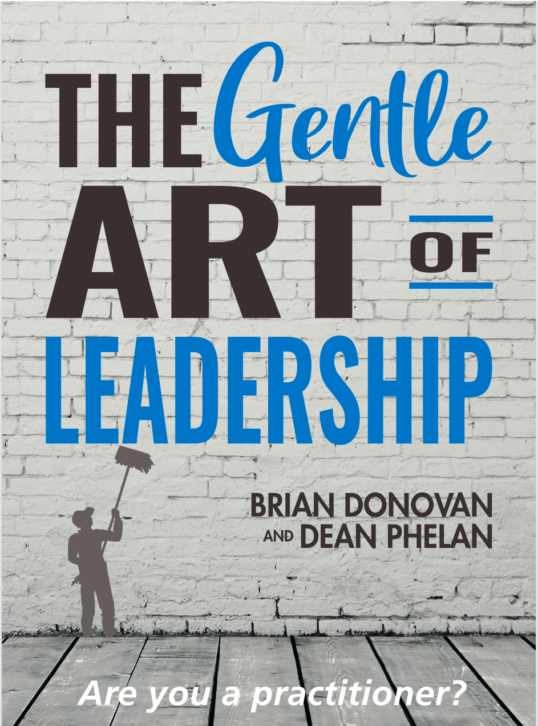I was standing with Matt Church, the founder of Thought Leaders Business School, after a conference, when a waiter came by offering canapés.
Matt said to him, “Michael, it’s good to see you! You have been around at this hotel for a few years. Thank you so much for all the work you have done for all our events to make them go so smoothly. I really appreciate it.”
They talked for another few minutes before Michael walked away with a big smile on his face.
I said to Matt that in my experience the best leaders I have worked with treat people like that, with dignity, respect and genuine appreciation.
I told him that I believe those leaders get better results than command/control style leaders.
He said, “You should write a book about that and call it, ‘The Gentle Art of Leadership’.”
What a great idea, I thought. I invited my good friend and colleague of many years, Dean Phelan, to jointly author the book with me. Dean is himself a practitioner of the gentle art of leadership.
But why do we want to write this book now? Businesses are closing down or being reinvented, people are being laid off, stress levels are rising, those of us who are working are adjusting to working remotely and are more reliant on digital communication to produce results.
We face an uncertain future.
You could be forgiven for wondering if you have what it takes to be an effective leader during this time.
You may be asking yourself how do I lead when I can’t be with people?
You may be reinventing your leadership style to suit the times.
One thing that is certain is that we need leaders who can steer us through these uncertain times.
We believe that now more than ever, we need leaders who practice the gentle art of leadership. They get the best out of people by treating them with dignity and respect. They have an art of being present to those they are with and expressing empathy, encouragement, warmth and good humour. They remind people of why they are part of something worthwhile – that the cause they are all committed to is still vitally important. And they practise and invest in healthy relationships and building a flourishing culture, using all the opportunities, tools and skills they can.
We aim to publish the book in the second half of this year, with stories, practices and examples to support practitioners of the gentle art of leadership.
In the meantime, we will be facilitating a conversation about how the gentle art of leadership could help steer us through this current challenging period. We want to hear your stories and examples of role models who practice the gentle art of leadership and produce better results through doing so.
Your insights and experience will be grist for the mill for the book.
🙋Who are your role models of leaders who practice the gentle art of leadership?
Best regards, Brian

